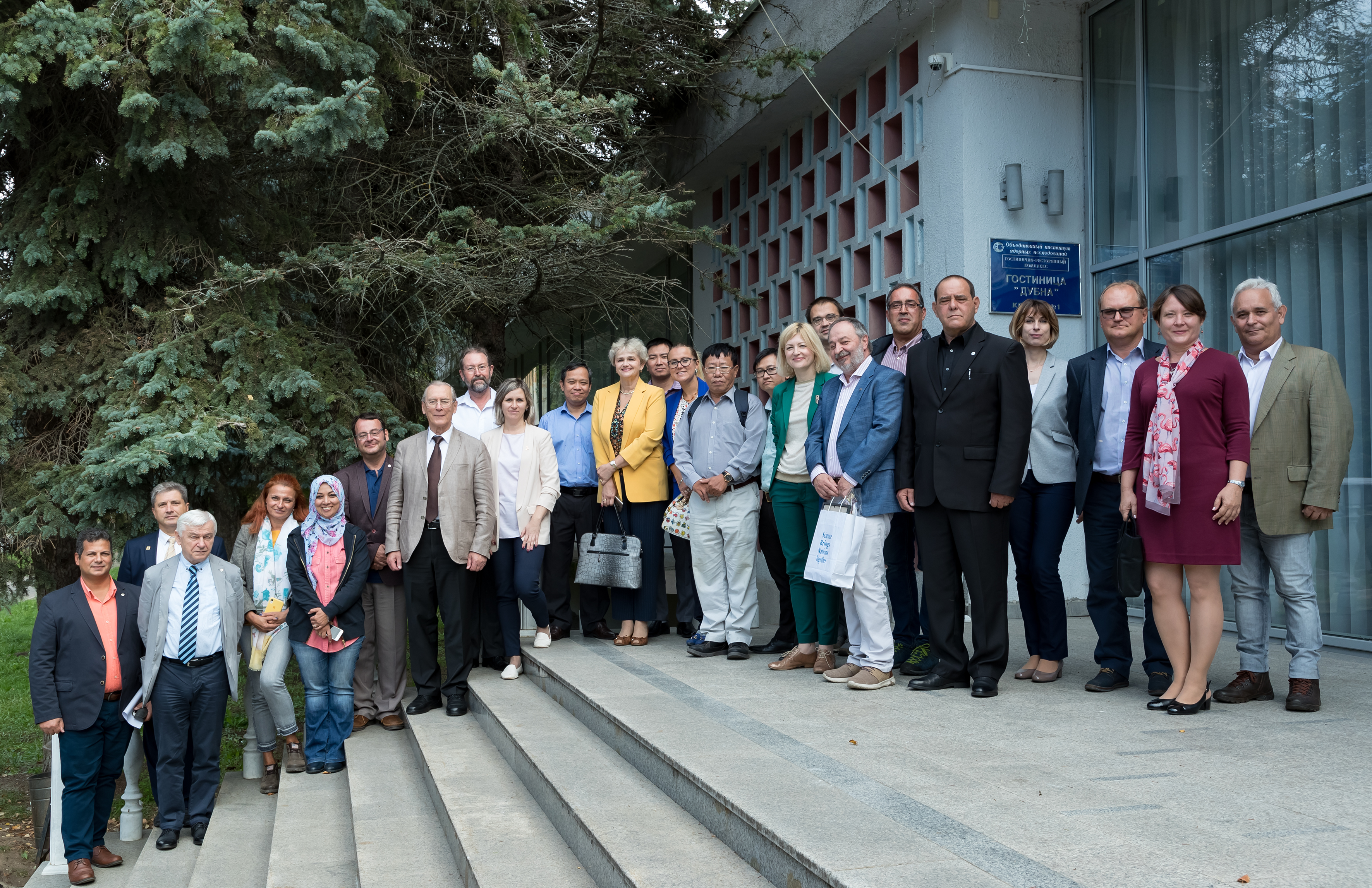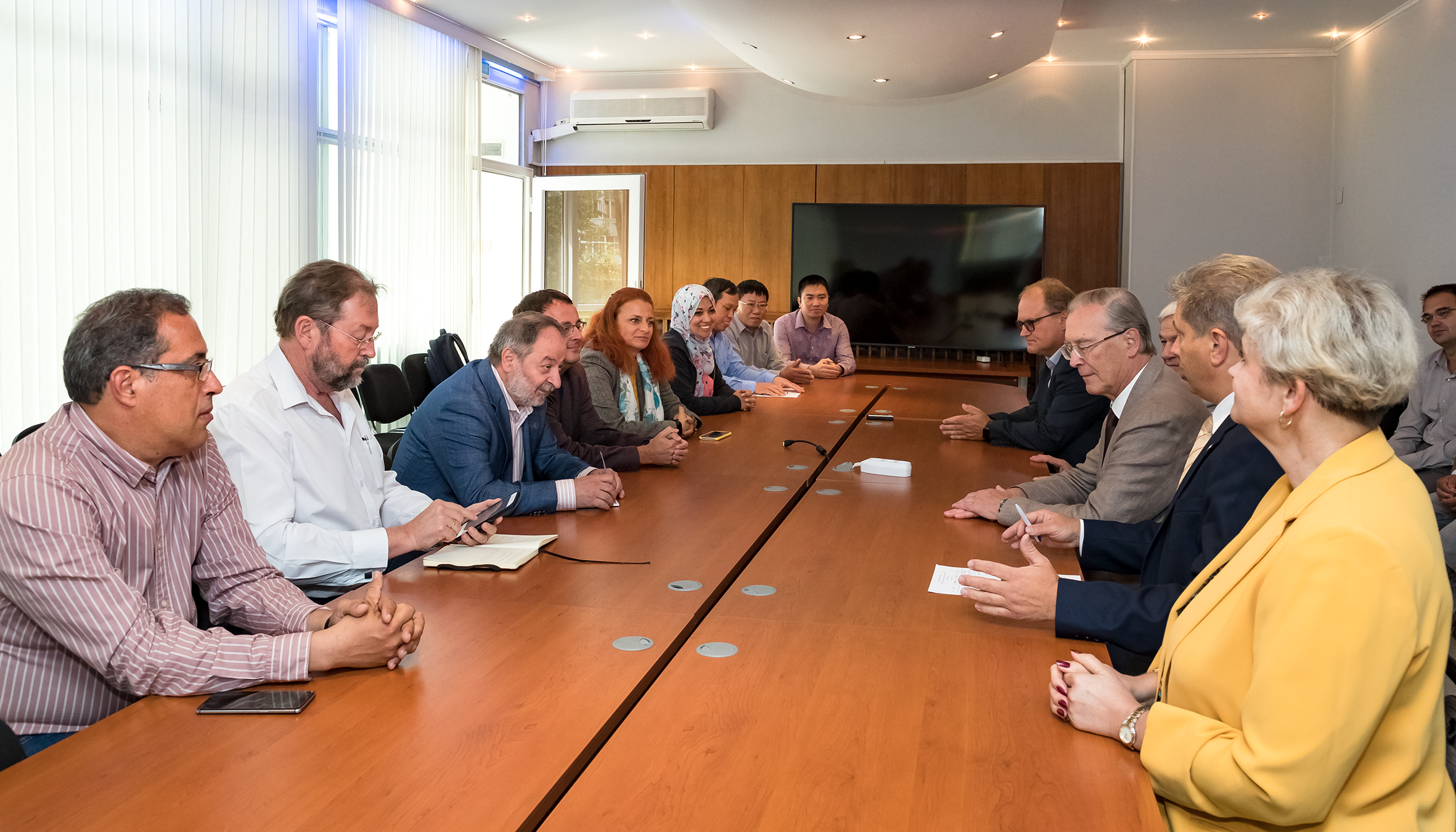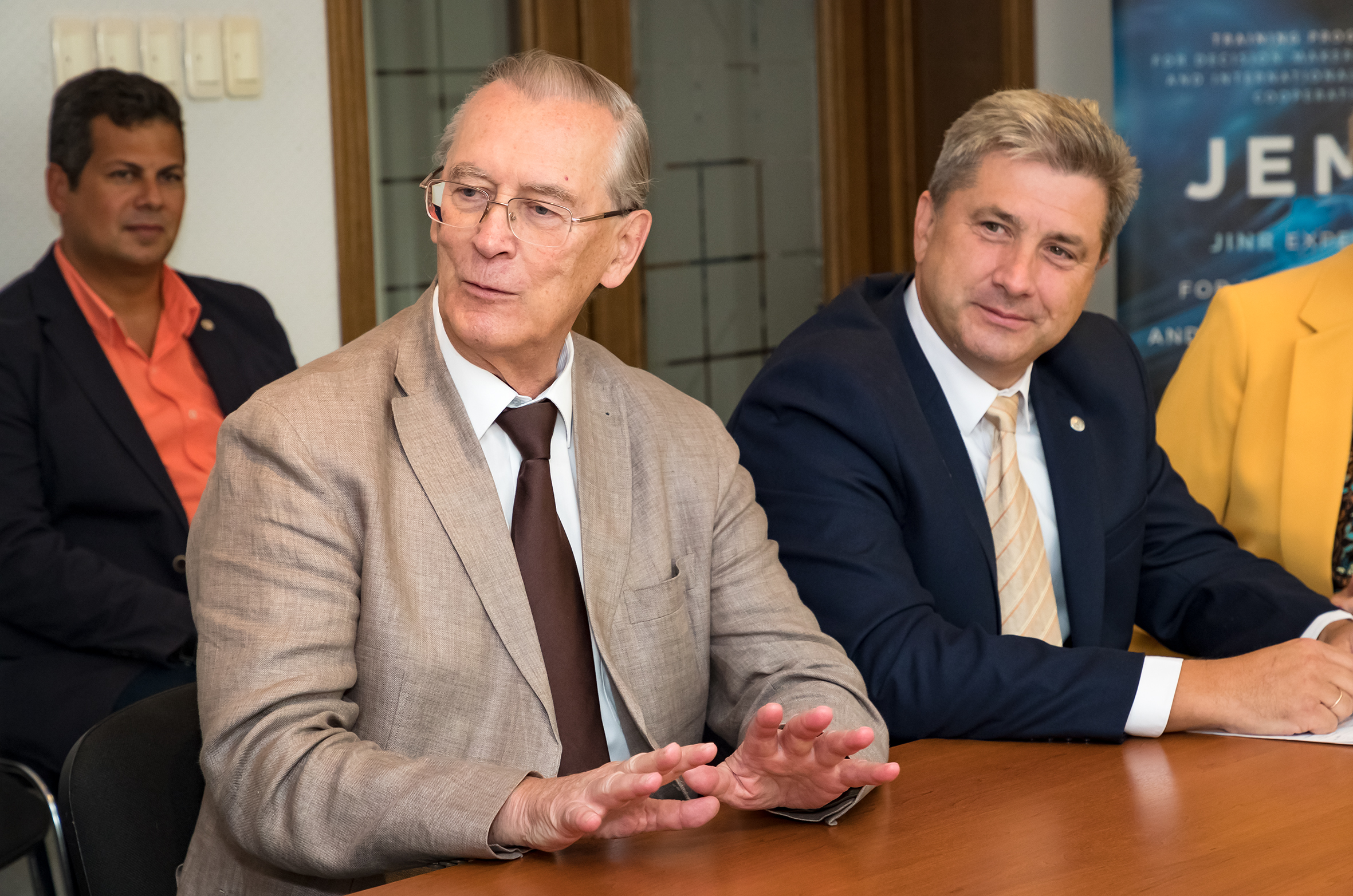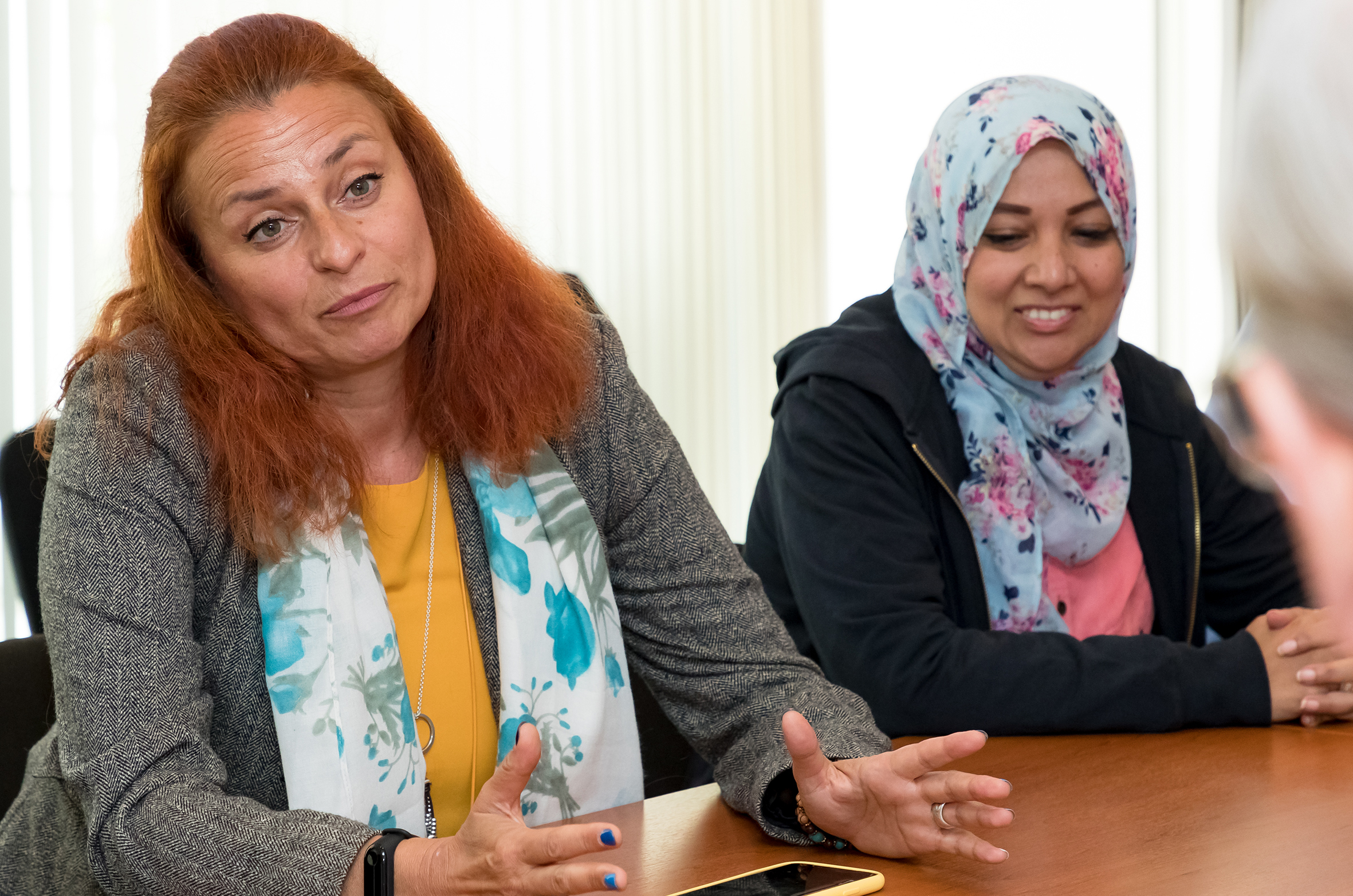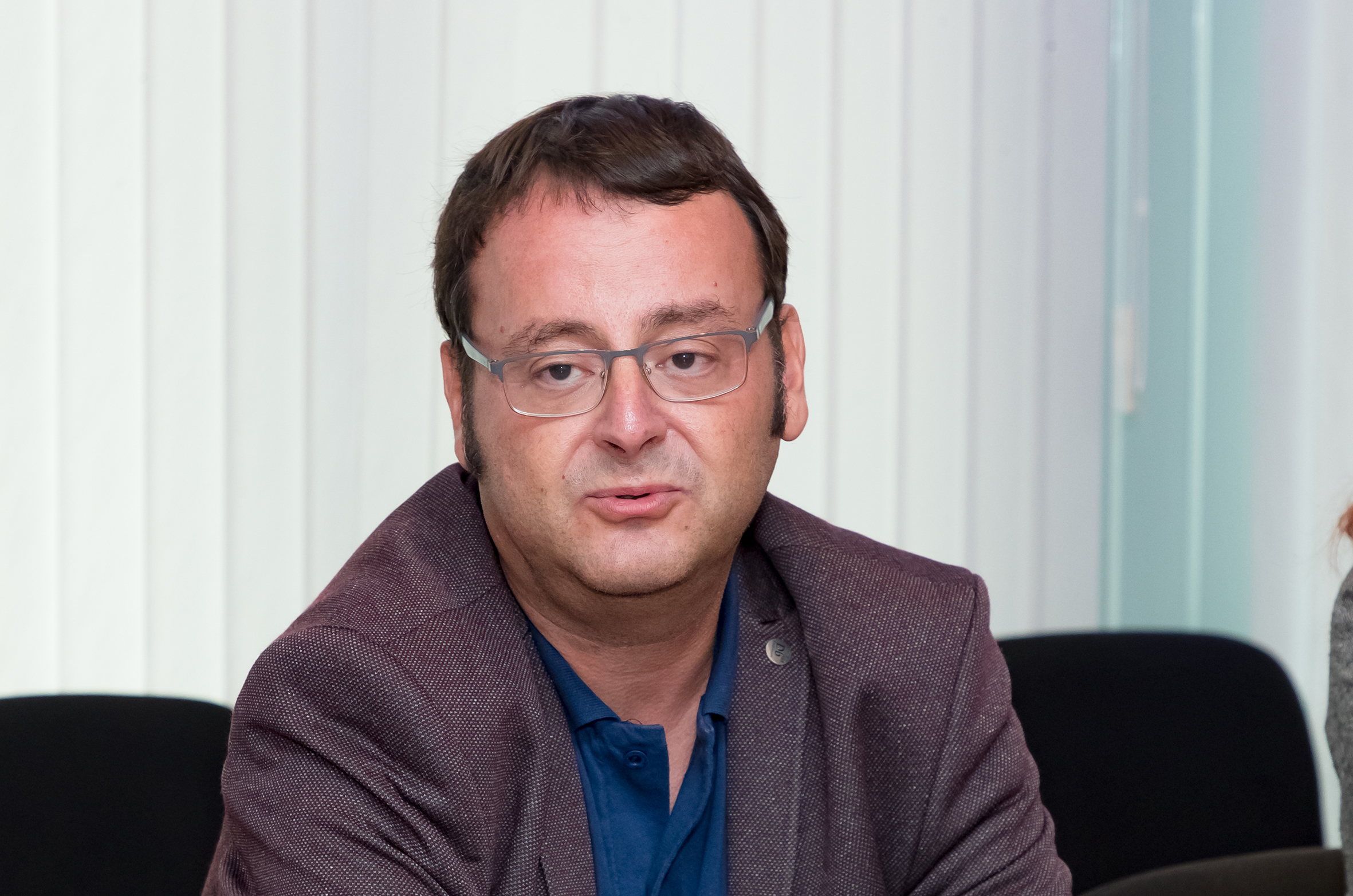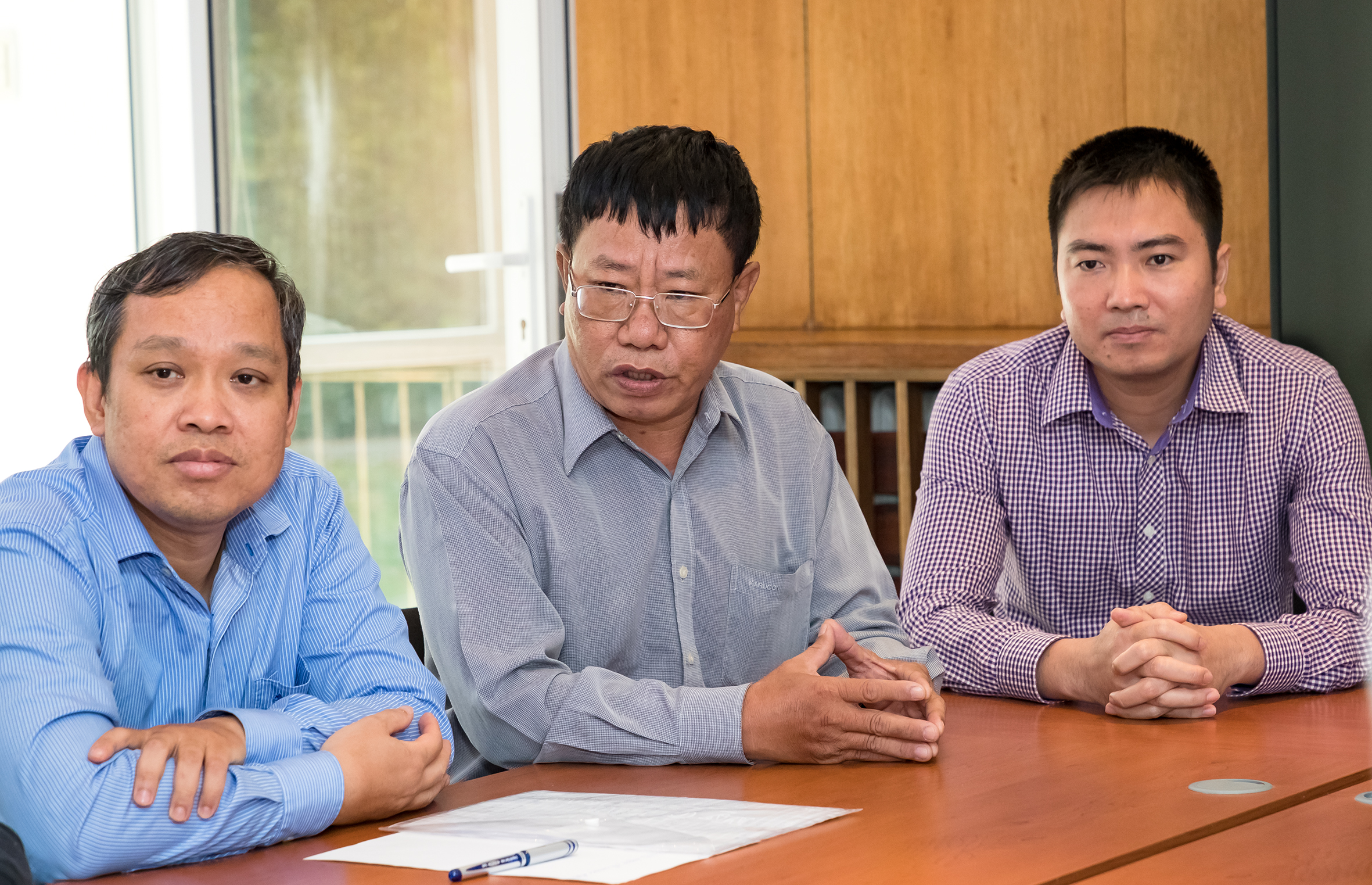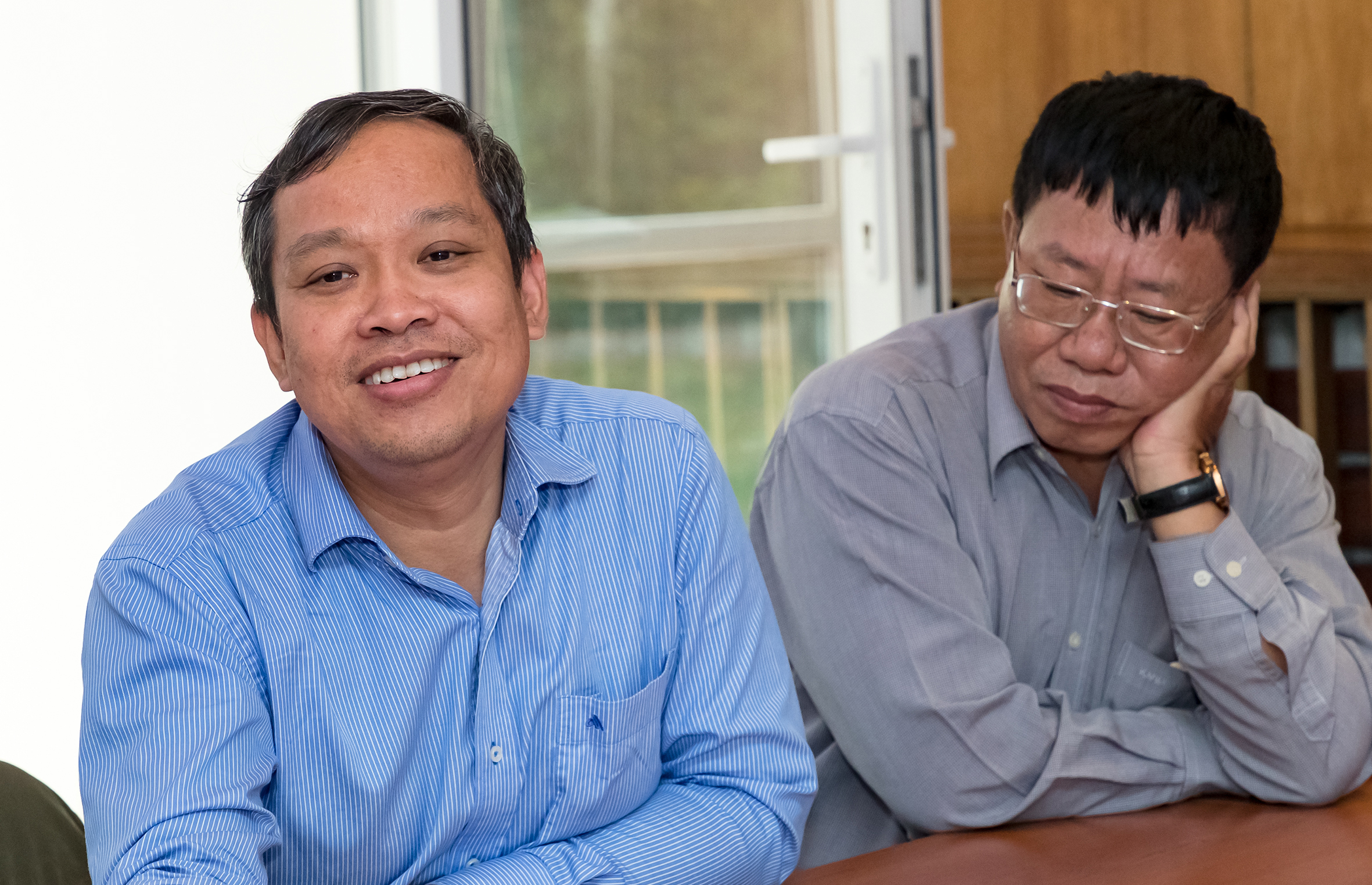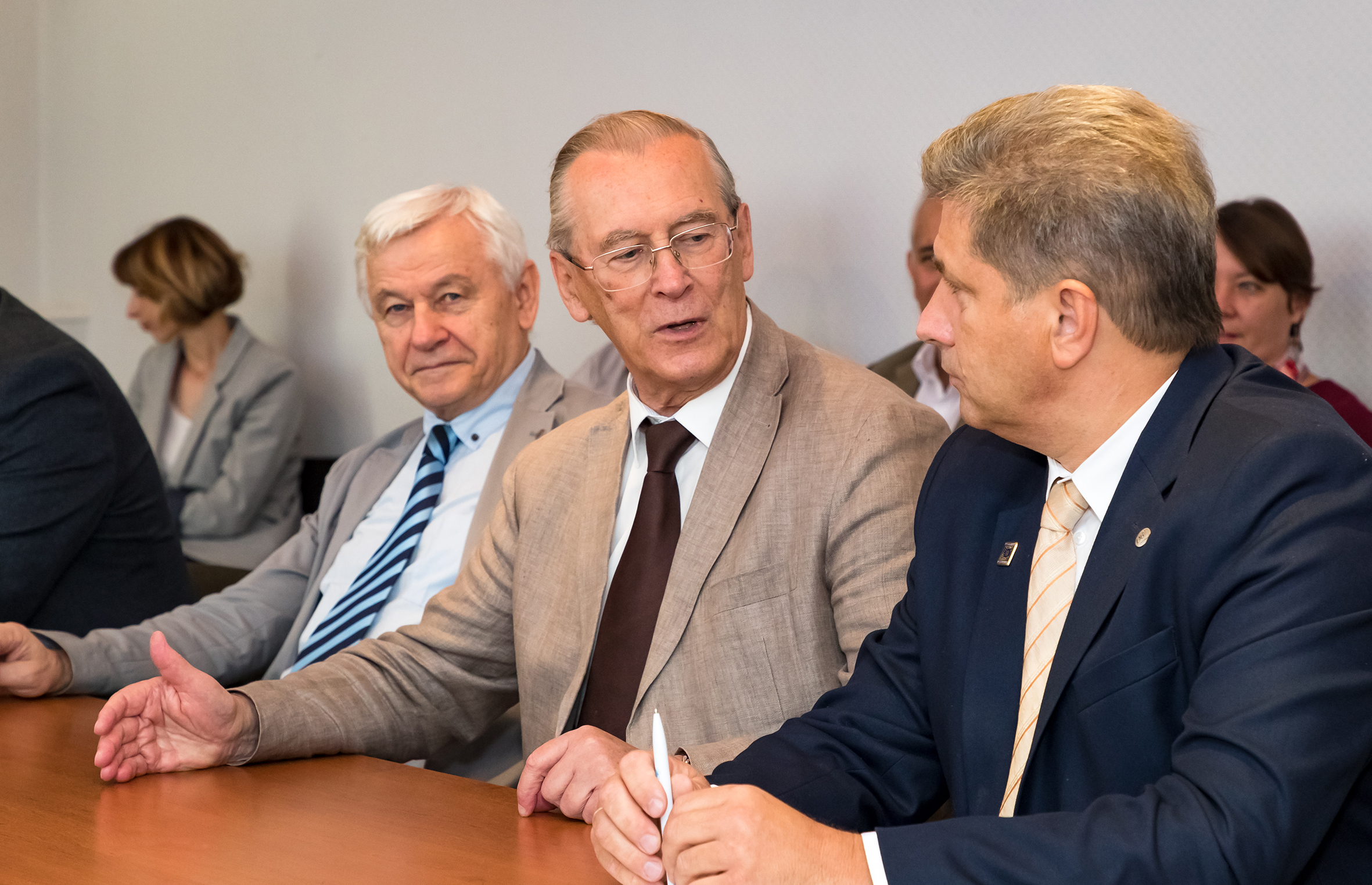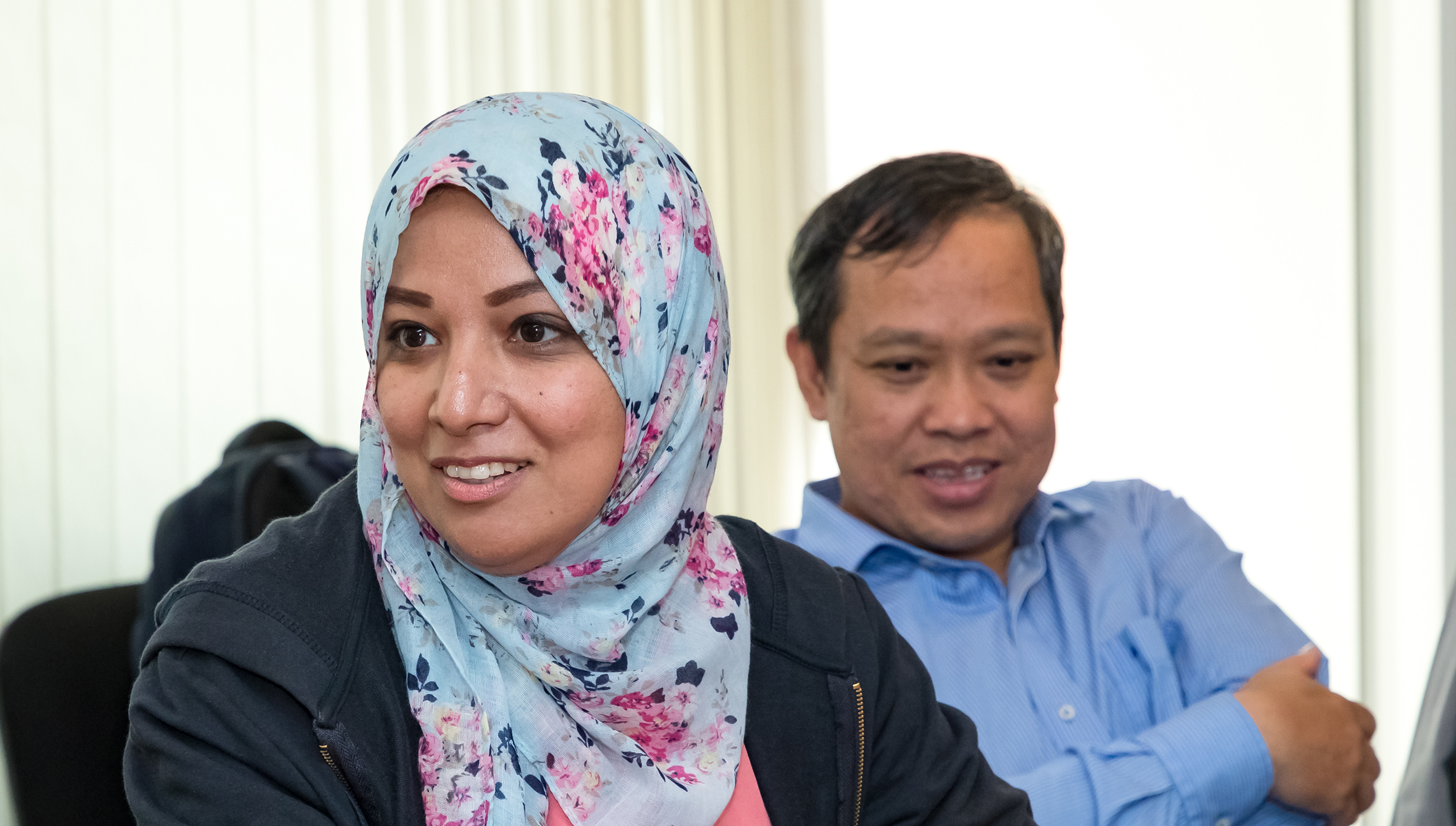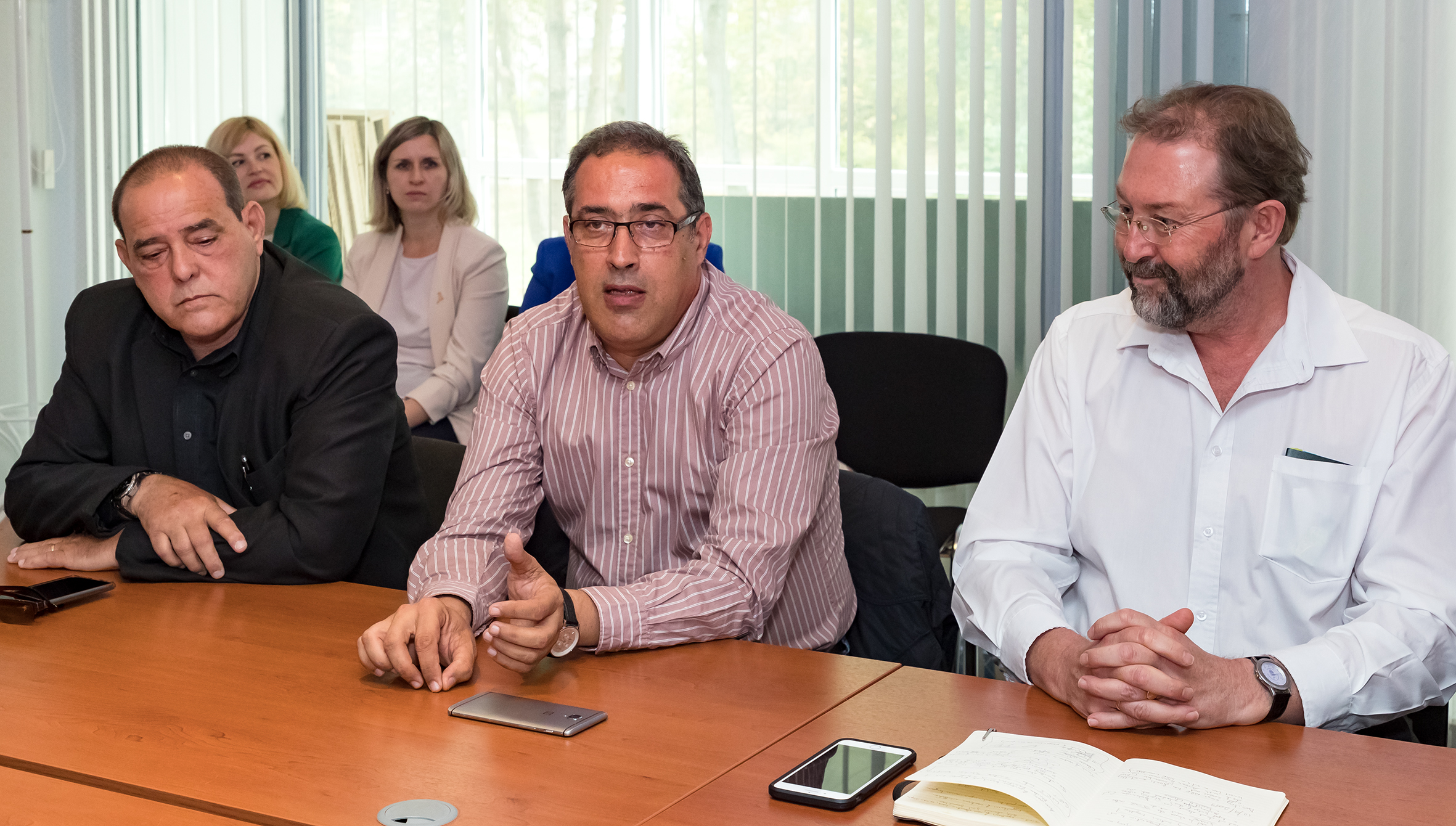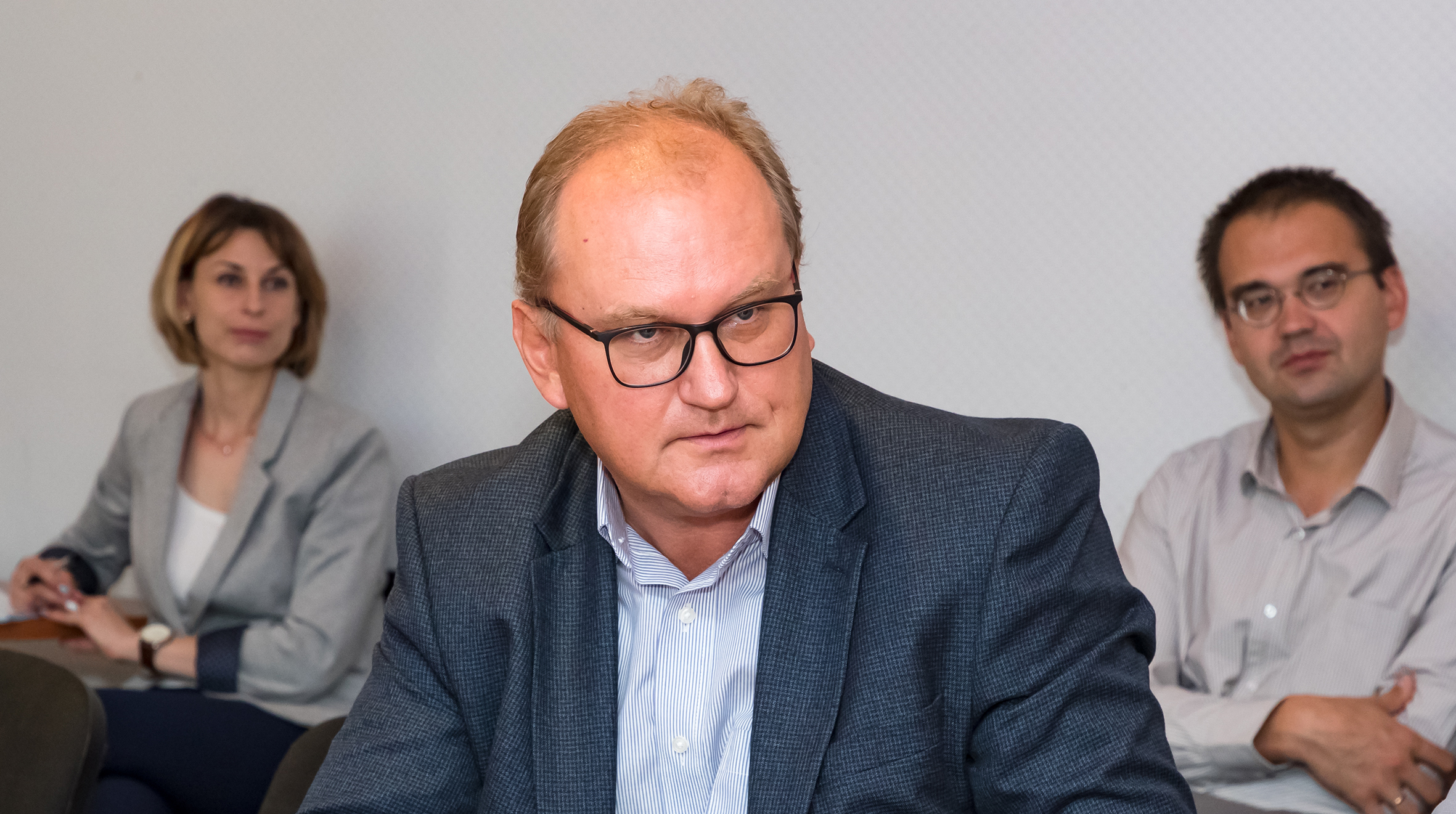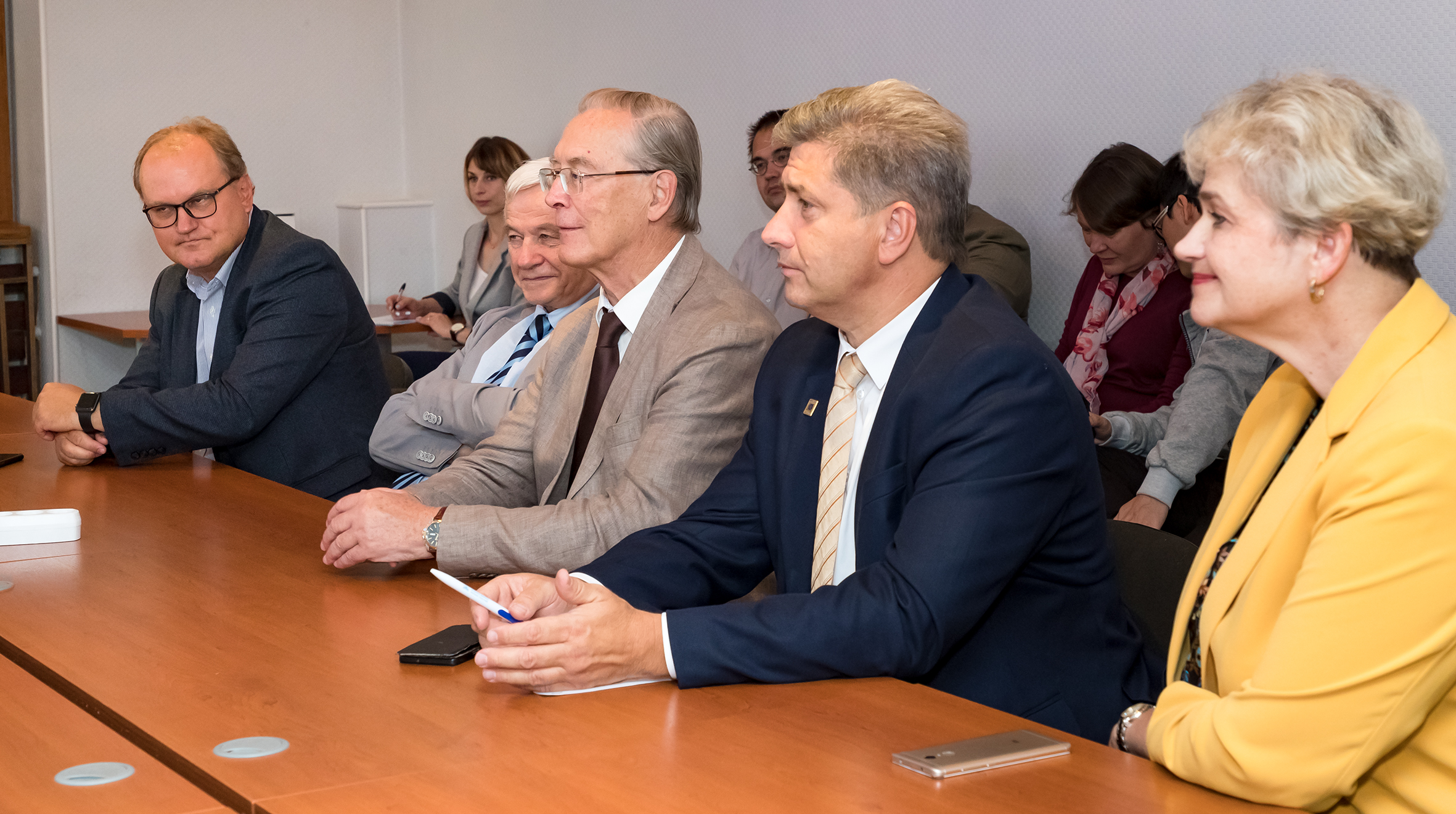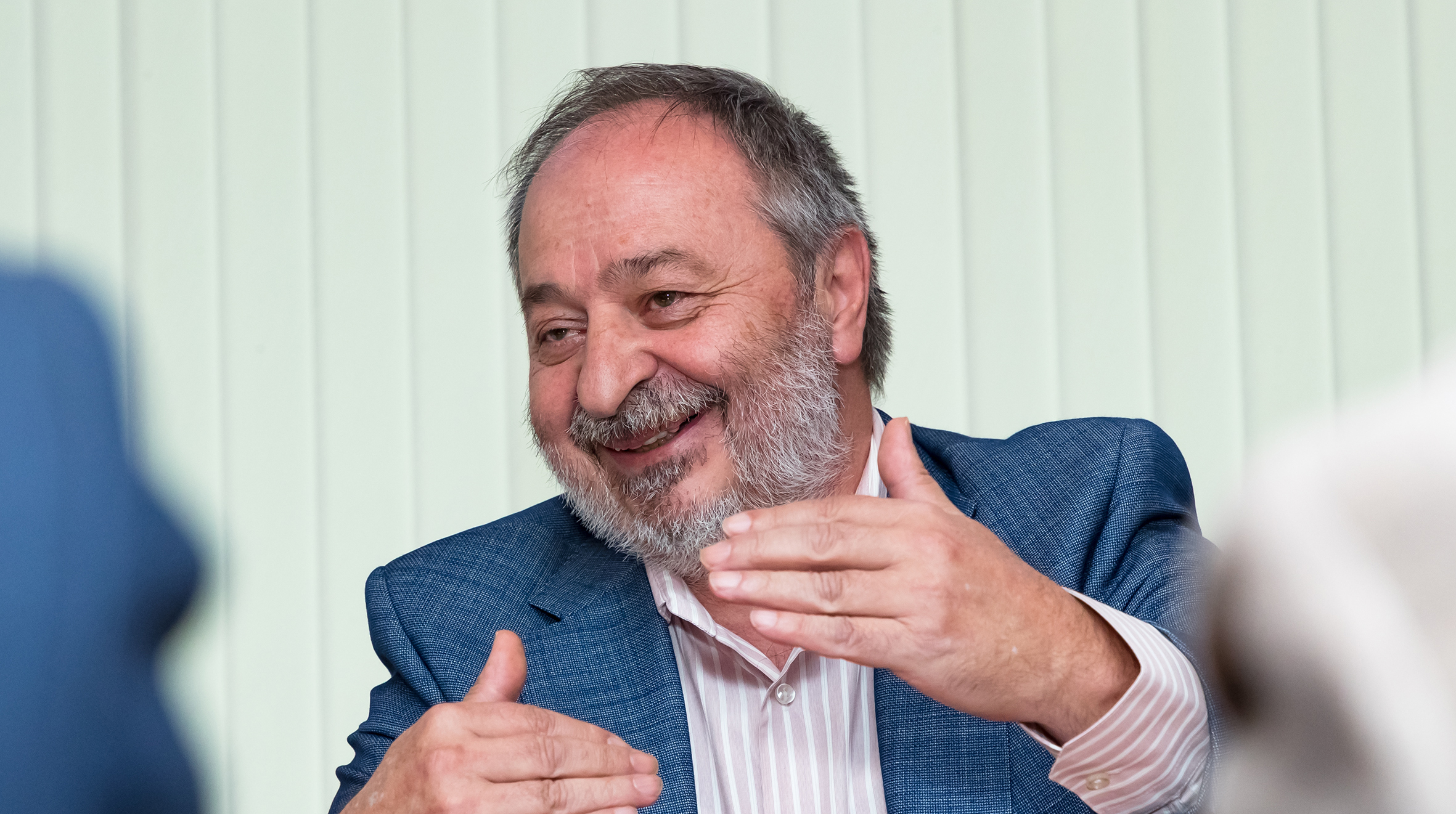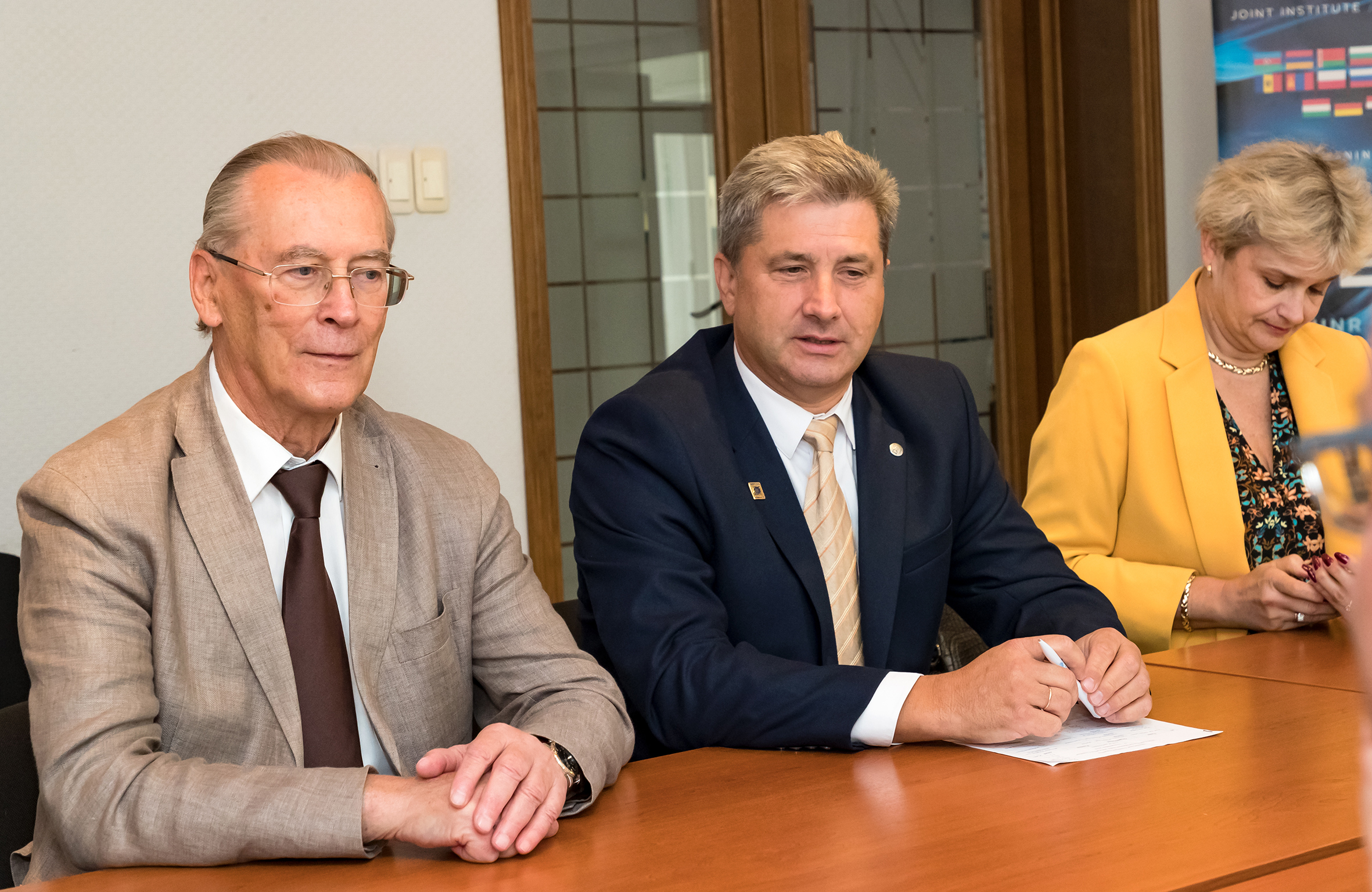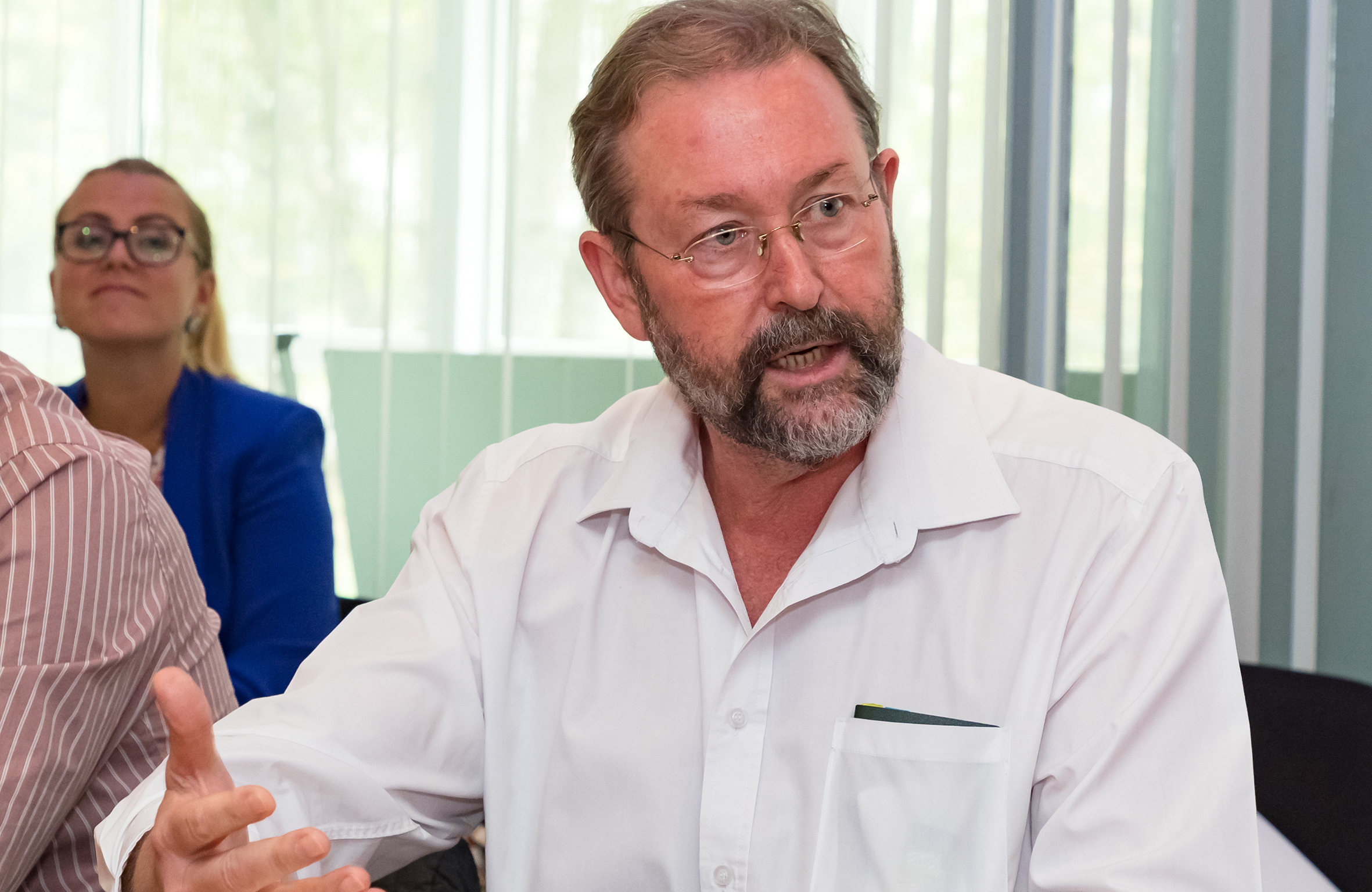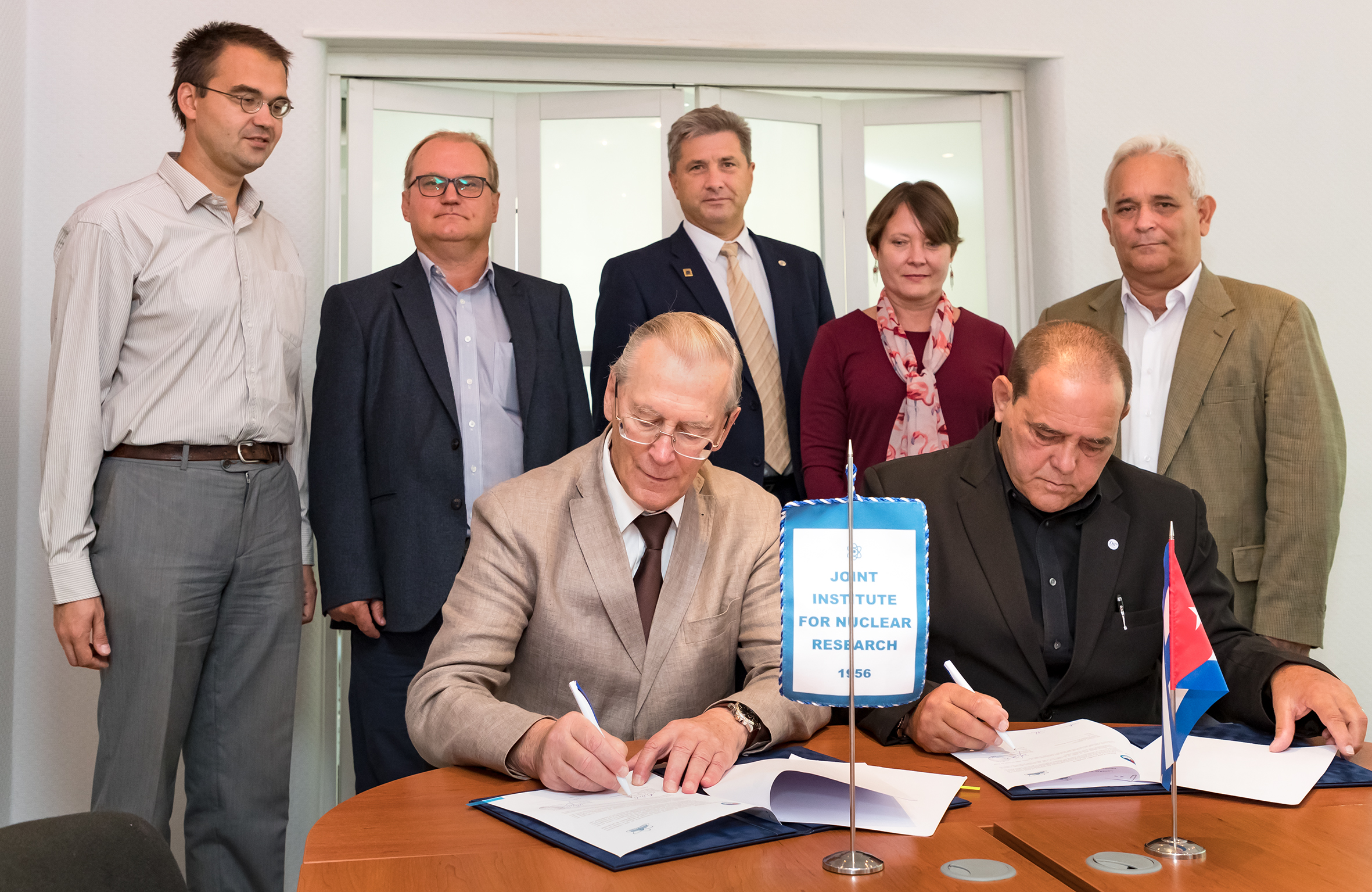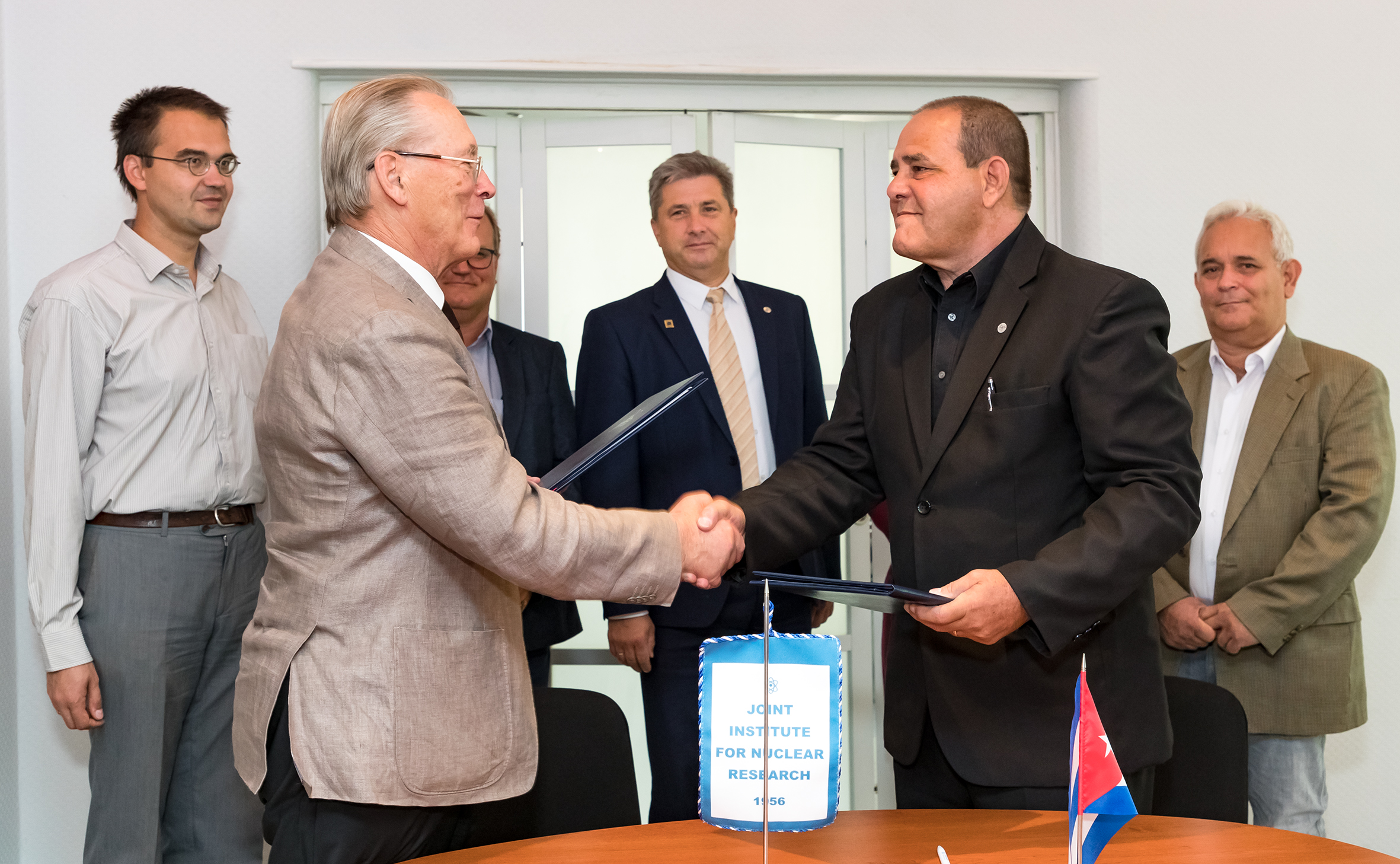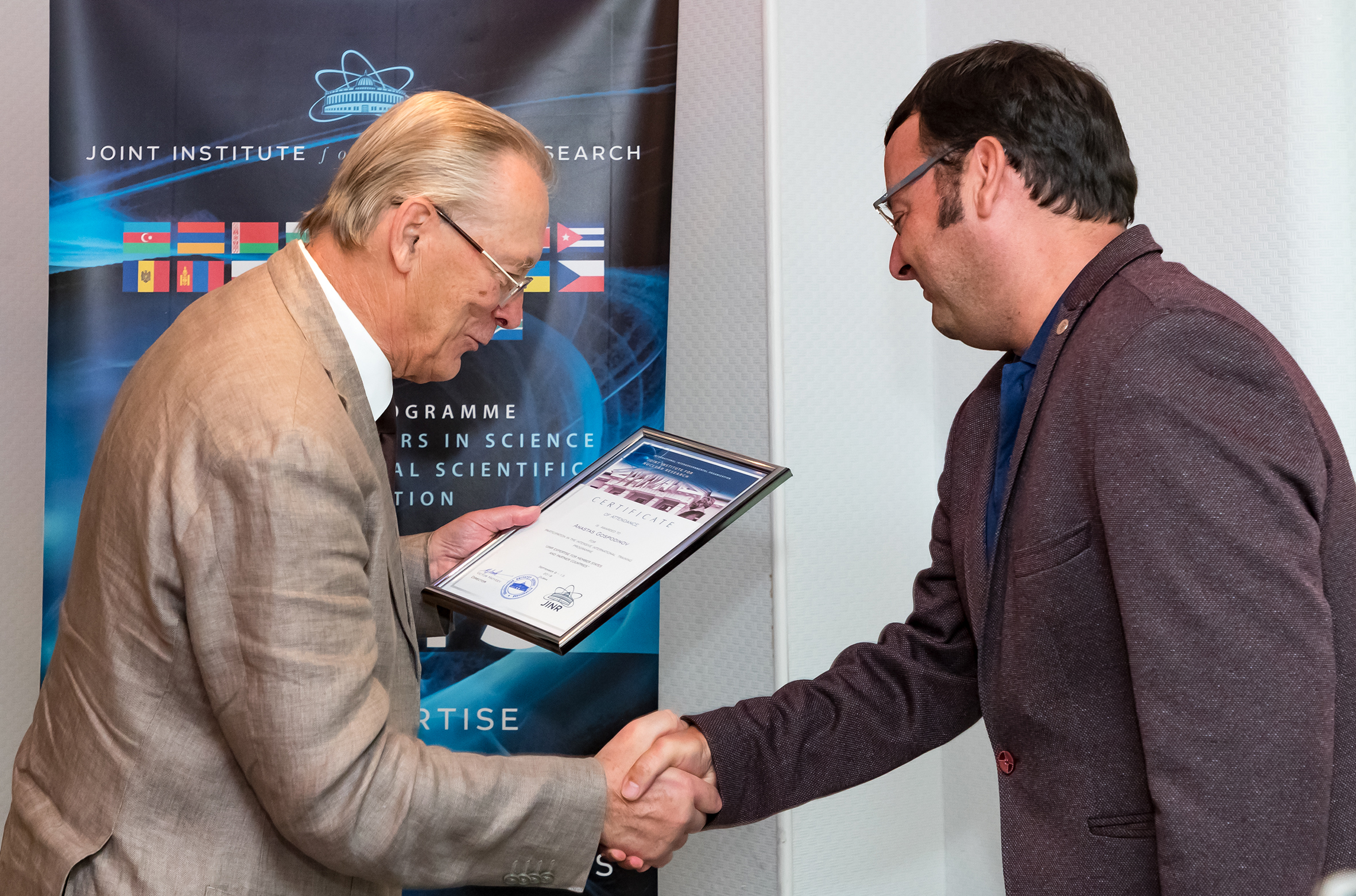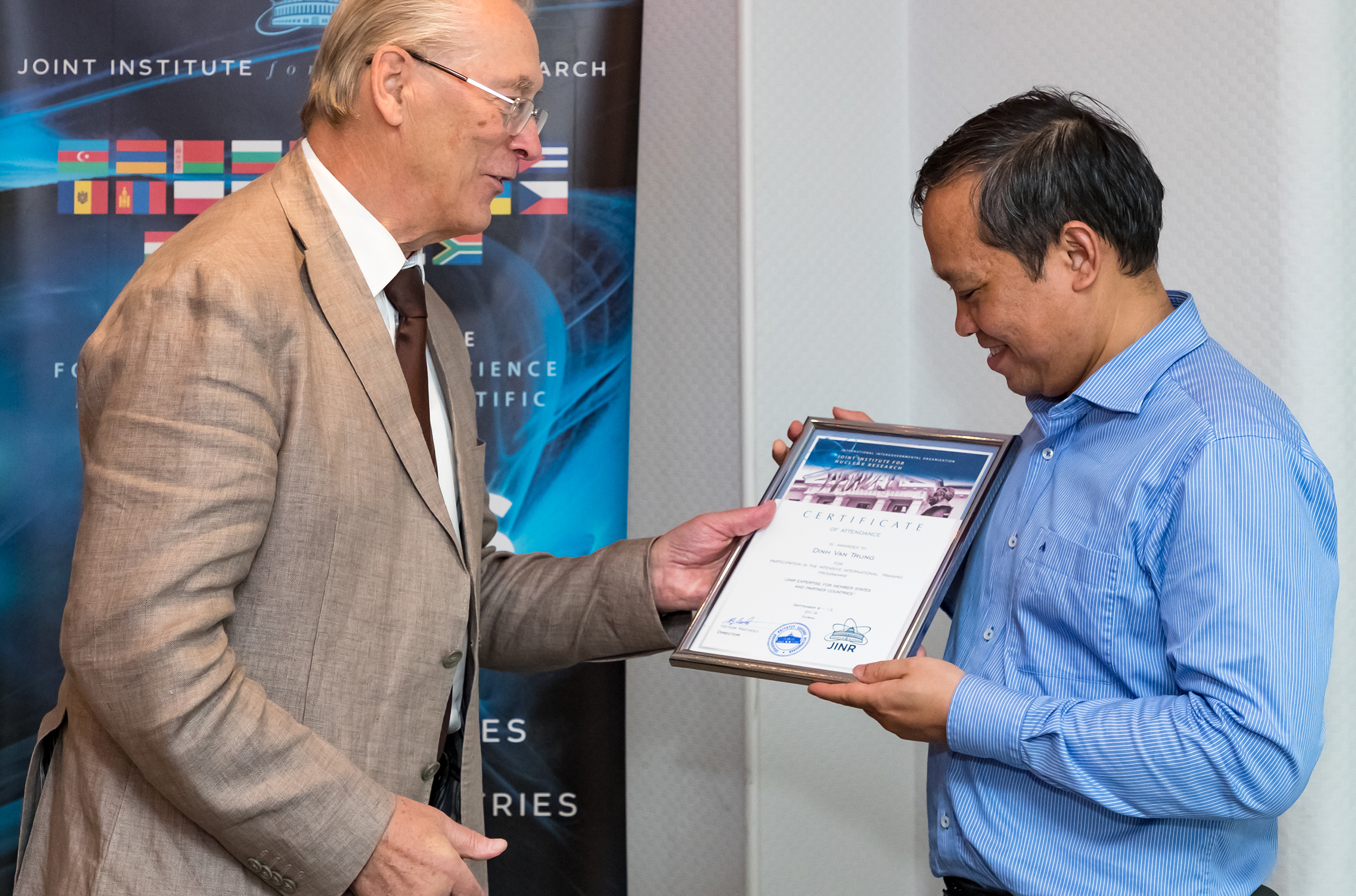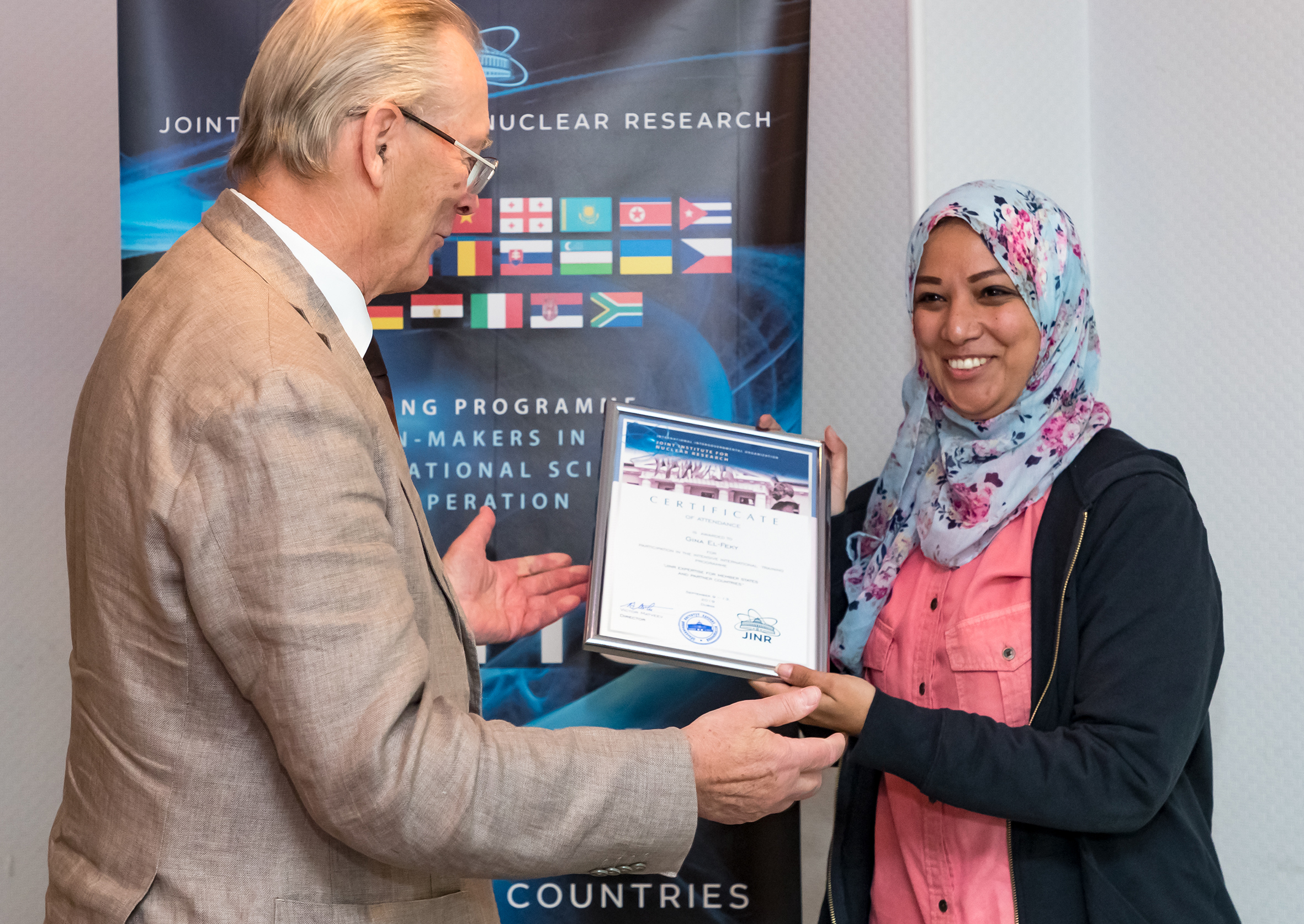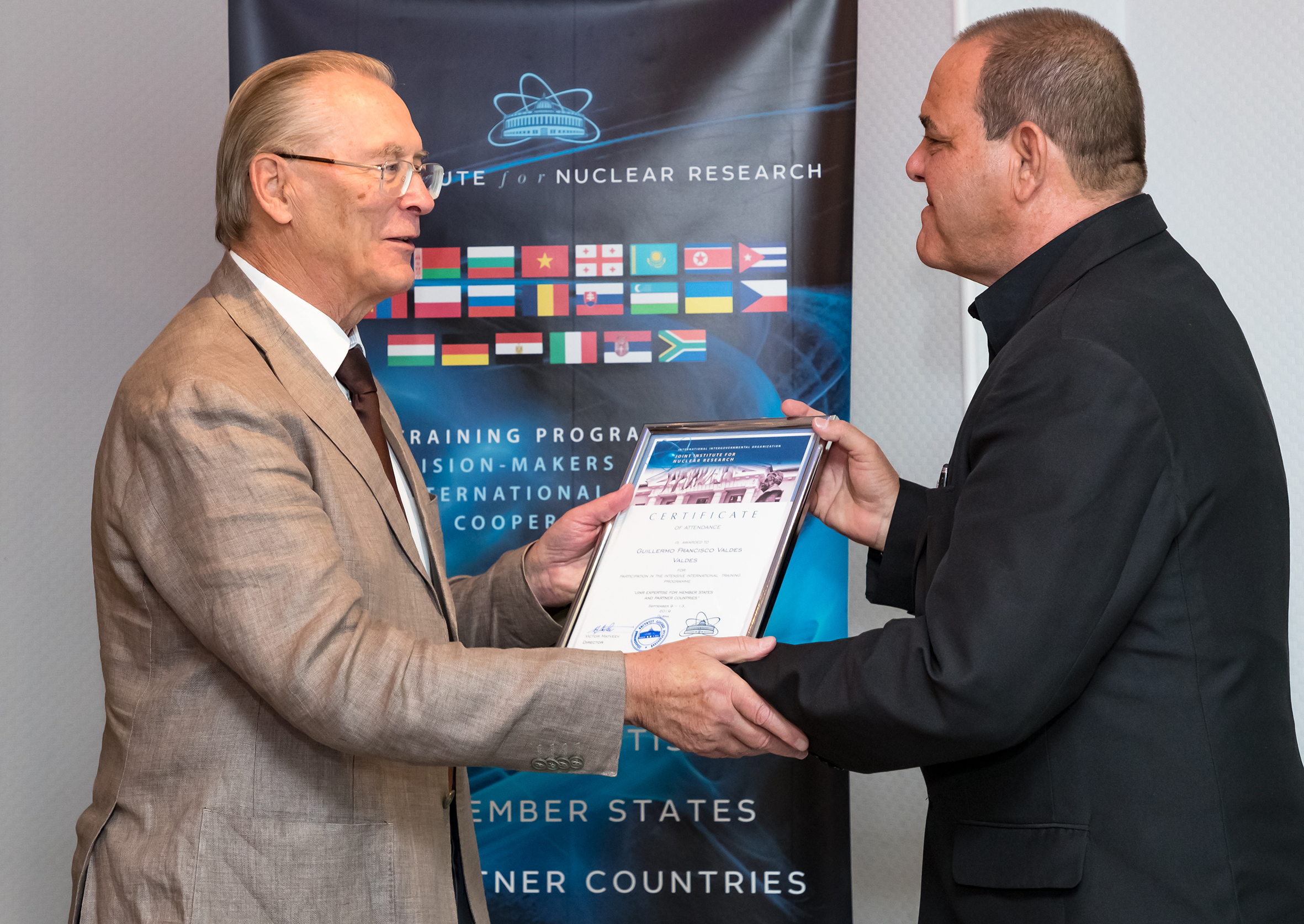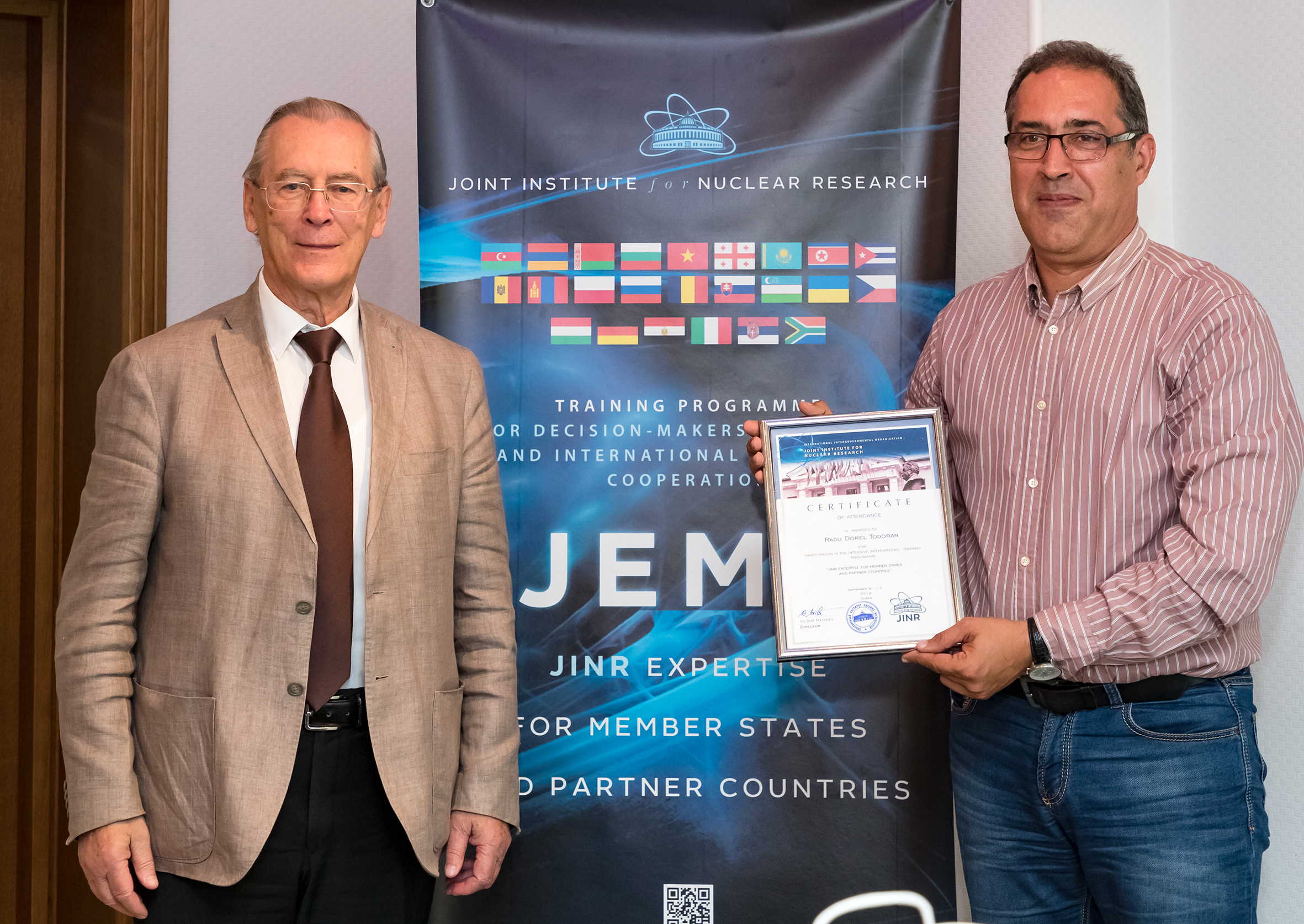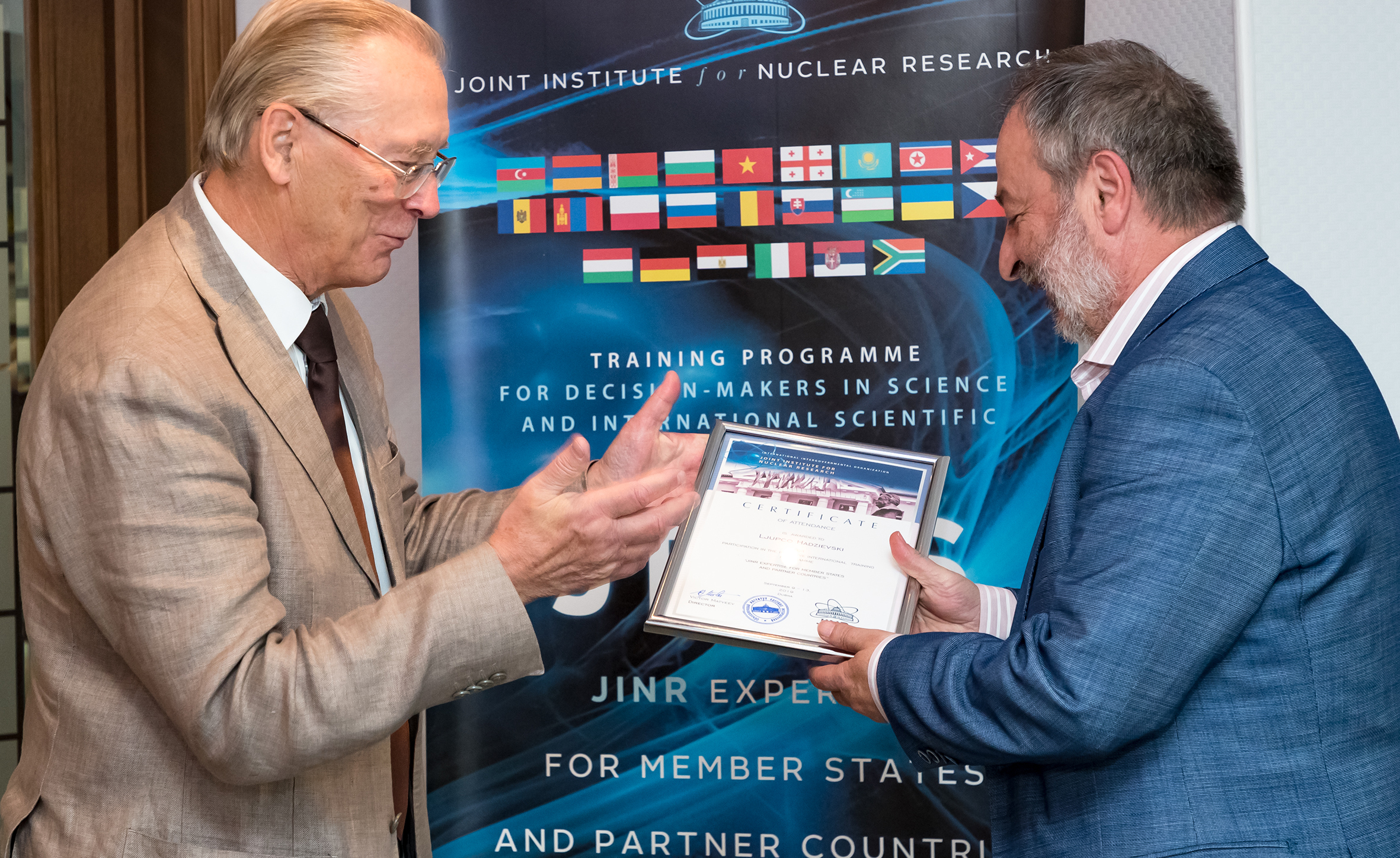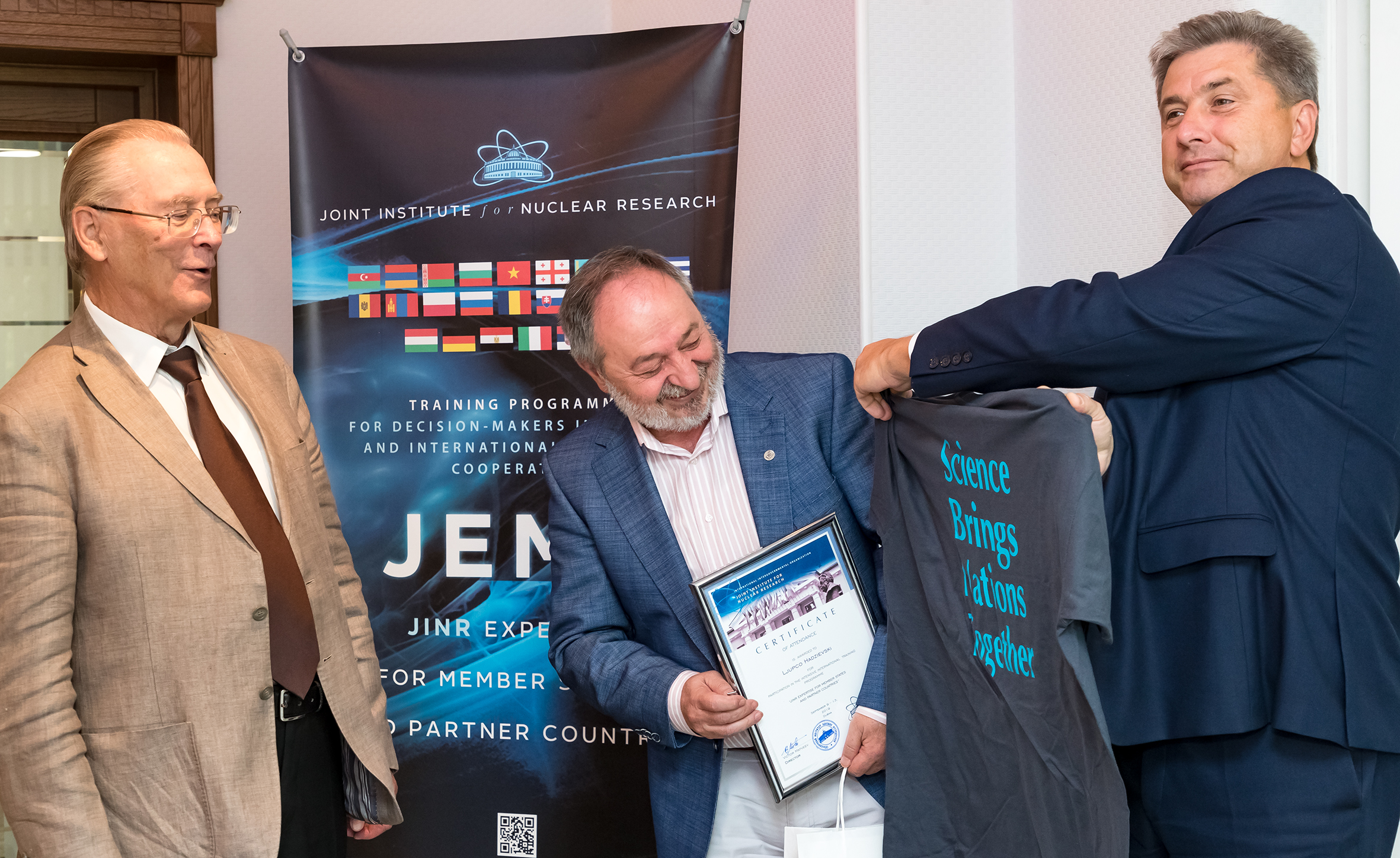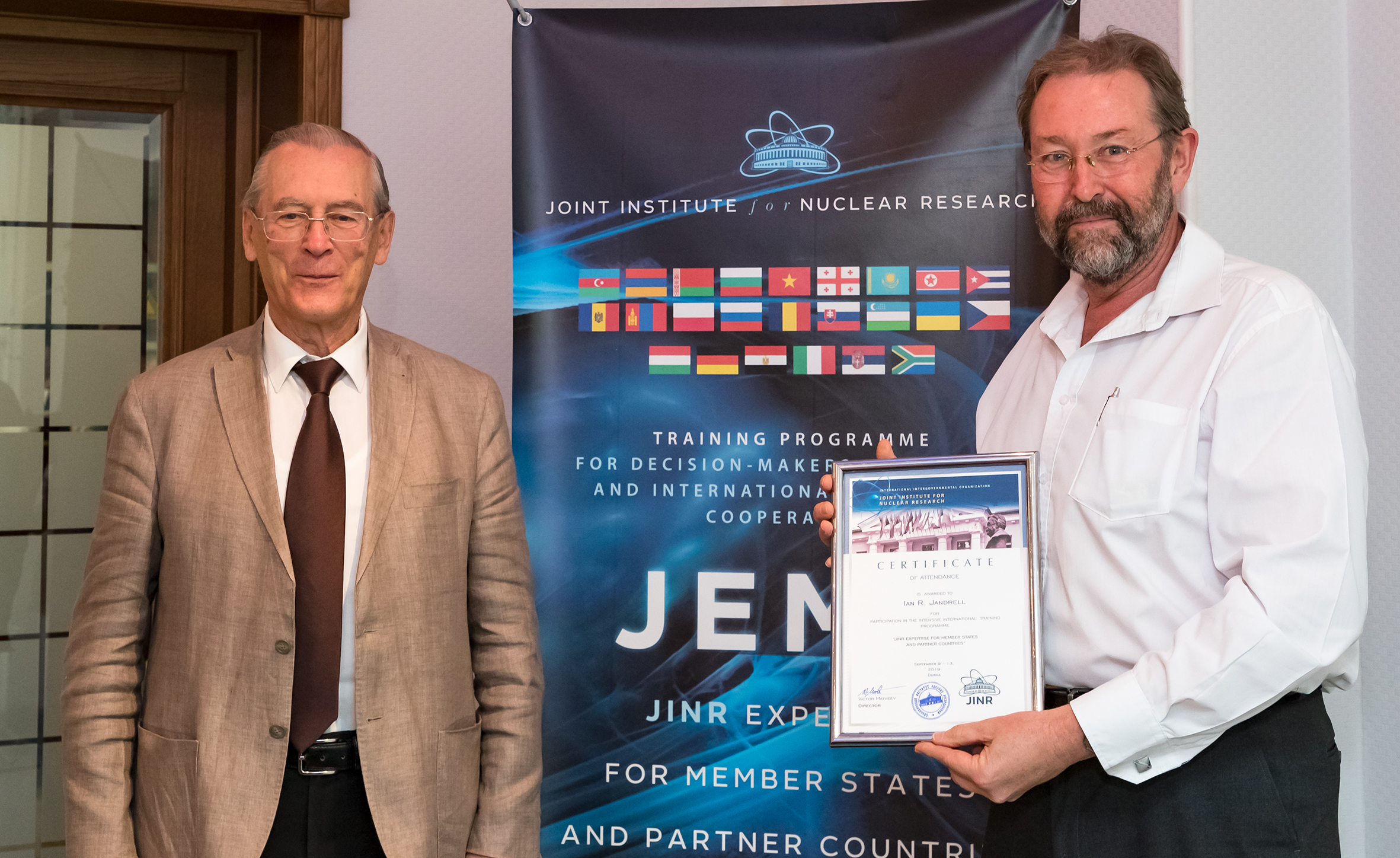JEMS-13 milestones: “JINR builds the future with your help”
News, 18 September 2019
On 13 September, the 13th regular international training programme for decision-makers in science and international scientific cooperation JEMS was concluded. It gathered representatives of Bulgaria, Cuba, Egypt, Romania, the RSA, Serbia, and Vietnam.
The results of the training programme were summed up at the traditional round table headed by JINR Director Academician V. A. Matveev who presented the certificates on passing JEMS-13 to participants. Welcoming participants, V. A. Matveev noted: “You are a part of our long-range plan for development. JINR builds the future with your help.” A peculiarity of the round table was a large number of proposals made by participants for the improvement of the training programme. So, almost every speech contained interesting and practical ideas. One cannot but mentions the growth of the number of JEMS participants for whom JEMS training programme is an instrument to develop practical cooperation with JINR. In this regard, a lot of speakers noted that they needed more time to get acquainted deeper with interesting to them research and meet specialists. Participants also offered to balance the volume of the lecture programme by combining them with excursions. Moreover, many participants asked to increase the number of excursions thus increasing the clarity of presented material and facilitating more questions. Radel Dorel Todoran, Coordinator for the cooperation between JINR and the Technical University of Cluj-Napoca (Romania) made an interesting proposal. He offered to create several videos representing opportunities of JINR for various target groups: students, teachers and researchers.
JINR Vice-Director R. Lednický, Head of the International Cooperation Department D. V. Kamanin, UC Director S. Z. Pakuliak and Advisor to the JINR Directorate M. Yu. Tumanova also took part in the round table. Moreover, the meeting was attended by one of the founders of the training programme, Plenipotentiary Representative of the Government of Vietnam in JINR Le Hong Khiem, recently a director and now an honoured professor of the VAS Institute of Physics. Le Hong Khiem highlighted in his speech that the participation of Vietnamese representatives in JEMS greatly contributed to the promotion of information about JINR opportunities in Vietnam: “I am trying to support JEMS as much as possible. Officials taking part in the JEMS training programme are always impressed by JINR opportunities and then share acquired information with their colleagues and students. Nowadays, Vietnam is highly interested in the cooperation with JINR, and it is worth mentioning that the Vietnam Academy of Science has established a grant for the development of this cooperation.” Director of the VAST Institute of Physics Dinh Van Trung also mentioned the issue of the development of the cooperation with JINR: “Being a theoretician, I was greatly interested to get acquainted with the Laboratory of Theoretical Physics but also I learned a lot about the activities of the Laboratory of Nuclear Problems. We have discussed with Prof. Le Hong Khiem how to expand cooperation of the VAST Institute of Physics and JINR in the future. Furthermore, at this training programme, I had an opportunity to learn for the first time how our young scientists we have sent to Dubna work here. Some of them are ready to defend their dissertations, and it is important to us that these young specialists get education in the fields of nuclear physics in the world-level scientific centre.”
Moreover, Director of the Institute of Molecular Biology of the Bulgarian Academy of Sciences Iva Ugrinova also spoke about the fields she discovered for cooperation with the Joint Institute: “As far as molecular biology is a multidisciplinary science, our Institute wants to go beyond the borders in our research fields and establish new collaboration with scientists from other research areas. This training programme was a great week spent in a “fairytale of science”. We met a lot of brilliant scientists; we learned a lot and found out new opportunities to broaden the horizons of our research. In particular, it regards to your medical proton studies and the use of track membranes, as well as radiobiology, and we are ready to launch the cooperation in these fields in the nearest future.” Scientific Secretary of the BAS Institute of Molecular Biology Anastas Gospodinov added that cooperation with JINR in the fields of radiation biology could give a significant momentum for the establishment of this scientific field in Bulgaria.
Organizer of Scientific Cooperation of the Academy of Scientific Research and Technology of Egypt Gina El Feky continued the topic of cooperation development with the Joint Institute in her speech: “I came to Dubna to find opportunities for collaboration with JINR, and I was deeply impressed with everything I saw here. At the JEMS training programme, I have collected all the necessary information, and now I am very enthusiastic about the future of our collaboration. Educational fields and training of our PhD students on the JINR basis are also very promising. I also plan to discuss with our leadership an opportunity to establish the JINR information centre at our Academy. There are several promising research fields developed in the Institute on the fields our scientists work at. I believe that it is necessary to introduce these specialists to each other for joint work.”
The practical milestone of the round table was signing of the agreement on cooperation between JINR and the Havana University. Dean of the Higher Institute of Technology and Applied Sciences of the Havana University (InSTEC) Guillermo Valdes: “This agreement opens new opportunities for us in the future. We are going to increase the number of students sent to Dubna as well as prepare the scientific youth here not only in the fields of nuclear physics but also chemistry and electronics. JINR has excellent conditions for conducting research. Nowadays, Cuba needs to gain experience in the development of interaction of universities and industrial companies of the country, and we can develop our cooperation in this field as well.”
Two JEMS-13 participants who concluded the round table discussion were united by the idea to become JINR ambassadors and spread information about the Insitute’s opportunities in their countries. One of them, Ljupco Hadzievski, Deputy Director of the Serbian National Scientific Council for Physics, commented on his participation in the training programme in the following way: “During this visit to Dubna, I had a particular task to develop a roadmap for the full membership of Serbia at JINR. We had fruitful discussions about cooperation in the fields of staff training. Now, I clearly understand how to integrate other Serbian universities into work with JINR. A joint workshop JINR and the University of Novi Sad have agreed to hold will greatly contribute to it, and I will be a chairman of it. I find the JEMS training programme very useful for decision-makers in science. I would like to note that to achieve a better understanding of opportunities granted by the cooperation with JINR, a more illustrative presentation of information is needed about the current scientific programmes of JINR and research planned for the future.”
Ian Jandrell, Dean of the Faculty of Engineering and the Built Environment at the University of Witwatersrand, the RSA, who also expressed his readiness to become a JINR ambassador in his country, shared his impression of JEMS: “Being an engineer engaged also in physics, I was much interested to see physical facilities of JINR by myself, to learn how they had been created; what plans the Institute had for the future. This acquaintance with your scientific infrastructure allows discovering possible fields for cooperation. An opportunity for experience exchange and further strengthening of cooperation with JINR are important to the Republic of South Africa. I also think that joint work is based on personal interaction and sitting around this table now, I see how friendly relations are being established. Particularly interpersonal interaction is actually a key to make the signed agreement work. This training programme provides an excellent opportunity to establish such contacts.”
